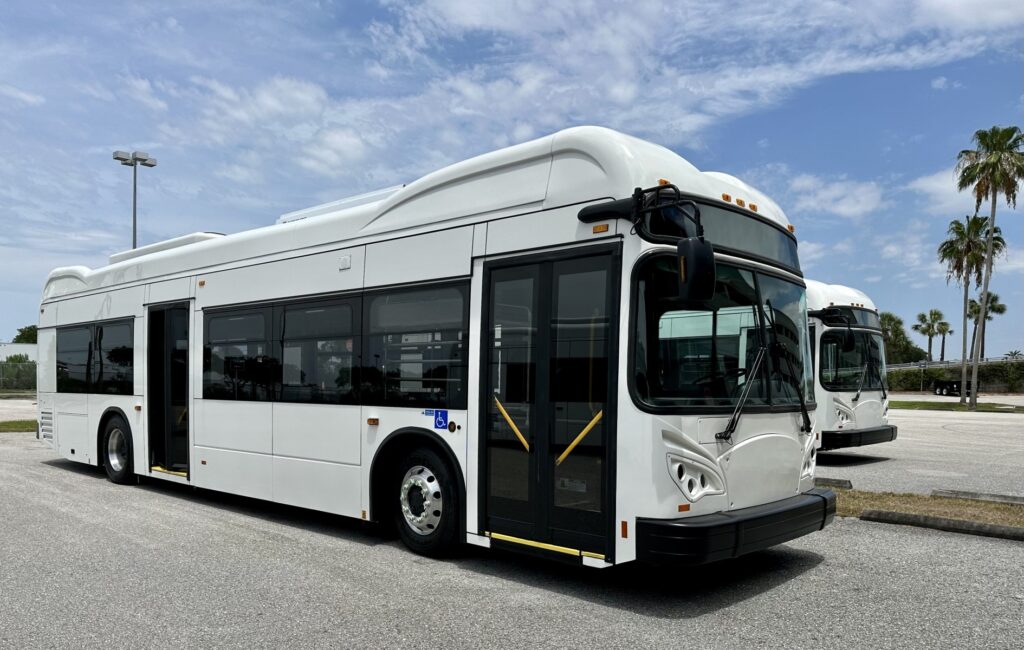Tampa International Airport (TPA) in Florida has added its first four electric buses to its vehicle fleet.
The four electric buses will serve as a partial replacement for TPA’s employee bus fleet, which transports people who work at TPA’s partner businesses from the North Employee Parking Lot off Hillsborough Avenue to the Main Terminal.
The four new vehicles are K9M low-floor electric buses built by BYD Motors and powered exclusively by electricity instead of fossil fuels. The 12m, 16-ton buses can travel up to 250km on a single charge, which can be fully replenished at a charging station in about four hours. Each handicapped-accessible bus has seating for up to 37 passengers and is equipped with USB chargers and a luggage rack.
As part of its sustainability efforts, the Hillsborough County Aviation Authority (HCAA), which operates TPA and Hillsborough County’s three public general aviation airports, won a federal 100% zero-emission vehicle grant worth US$4.65m to purchase the buses and install the charging stations at the North Employee Parking Lot to keep them running.
The authority is now seeking more grant funding to help update the rest of the employee bus fleet. The charging stations and four electric buses are all due to come online by mid-May 2023. The airport previously transported employees aboard seven diesel buses, which operated 24 hours a day, seven days a week. Each bus traveled about 58,000km per year driving the loop from the Main Terminal to the north end of the airport campus. A group of six compressed natural gas-powered buses complemented the diesel fleet when necessary.
“One of HCAA’s primary sustainability goals is focused on electrifying our campuses and reducing carbon emissions over this next decade,” said Eric Caplan, sustainability and resilience program director at TPA. “The addition of electric buses to our fleet will help us do just that. Not only will these buses assist us in achieving our sustainability goals, but the diversification of our transportation fleet will help make TPA’s campus more resilient to conditions that would affect our operational abilities as well.”
Read more sustainability updates from the passenger terminal industry, here.

